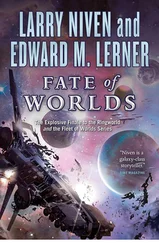204
“Would you have got out then?” I asked. She hesitated.
“I don’t know. I think I would have. I think so now, but I don’t know.”
Then, when she saw that I did not stop but kept driving, she got even more frightened. The rest I knew.
“No. I don’t understand it,” I said. “This is the part I don’t understand. How were you able to do it?”
“I told myself that… that nothing would happen.”
“You knew what I wanted to do? And where?”
“Yes.”
“How?”
After a long pause:
“I don’t know. Perhaps because by now I know you a little.”
I was silent. I still had many things to ask but didn’t dare. We stood by the window. With my eyes closed, feeling the great open space of the ocean, I said:
“All right, Eri, but what now? What is going to happen?”
“I told you already.”
“But I don’t want it this way,” I whispered.
“It can’t be any other way,” she replied after a long pause. “Besides…”
“Besides?”
“Never mind.”
That very day, in the evening, things got worse, again. Our trouble returned and progressed, and then retreated. Why? I do not know. She probably did not know, either. As if it was only in the face of extremity that we became close, and only then that we were able to understand each other. And a night. And another day.
On the fourth day I heard her talking on the telephone and was terribly afraid. She cried afterward. But at dinner was smiling again.
And this was the end and the beginning. Because the following week we went to Maë, the main city of the district, and in an office there, before a man dressed in white, we said the words that made us man and wife. That same day I sent a telegram to Olaf. The next day I went to the post office, but there was nothing from him. I thought that perhaps he had moved, and hence the delay. To tell the truth, even then, at the post office, I felt a twinge of anxiety, because this silence was not like Olaf, but what with all that had happened, I thought about it only for a moment and said nothing to her. As if it were forgotten.
For a couple joined only by the violence of my madness, we suited each other above expectation. Our life together was subject to a curious division. When it came to a difference in attitudes, Eri was able to defend her position, but then the matter in question was usually of a general nature; she was, for example, a staunch advocate of betrization and defended it with arguments not taken from books. That she opposed my views so openly I considered a good sign; but these discussions of ours took place during the day. In the light of day she did not dare — or did not wish — to speak about me objectively, calmly, no doubt because she did not know which of her words would amount to pointing out some personal fault of mine, some absurdity of “the character from the pickle jar,” to use Olaf’s expression, and which an attack leveled at the basic values of my time. But at night — perhaps because the darkness attenuated my presence somewhat — she spoke to me about myself, that is, about us, and I was glad of these quiet conversations in the dark, for the dark mercifully hid my frequent amazement. She told me about herself, about her childhood, and in this way I learned for the second time — for the first time, really, since with concrete, human content — how finely wrought was this society of constant, delicately stabilized harmony. It was considered a natural thing that having children and raising them during the first years of their life should require high qualifications and extensive preparation, in other words, a special course of study; in order to obtain permission to have offspring, a married couple had to pass a kind of examination; at first this seemed incredible to me, but on thinking it over I had to admit that we, of the past, and not they, should be charged with having paradoxical customs: in the old society one was not allowed to build a house or a bridge, treat an illness, perform the simplest administrative function, without specialized education, whereas the matter of utmost responsibility, bearing children, shaping their minds, was left to blind chance and momentary desires, and the community intervened only when mistakes had been made and it was too late to correct them.
So, then, obtaining the right to a child was now a distinction not awarded to just anyone. Furthermore, parents could not isolate children from their contemporaries; specially selected groups were formed, for both sexes, and in these the most divergent temperaments were represented. So-called difficult children were given additional, hypnagogic treatment, and the education of all children was begun very early. Not reading and writing, which came much later, but the education of the youngest, introducing them — through special games — to the functioning of the world, Earth, to the richness and variety of life in society; four- and five-year-olds were instilled, in precisely this way, with the principles of tolerance, coexistence, respect for other beliefs and attitudes, the unimportance of the differing external features of the children (and hence the adults) of other races. All of which seemed quite fine to me, with one single but fundamental reservation, because the immovable cornerstone of this world, its all-embracing rule, was betrization. The whole aim of a child’s upbringing was to make it accept betrization as a fact of life no less unquestionable than birth or death. When I heard how ancient history was taught, even from Eri, I had difficulty containing my indignation. According to this portrayal, those were times of animality and barbaric, uncontrolled procreation, of catastrophe both economic and military, and the undeniable achievements of past civilization were presented as an expression of the strength and determination that permitted people to overcome the benightedness and the cruelty of the period: those achievements, then, came about as it were in spite of the prevailing tendency to live at the cost of others. What once took untold effort, they said, and was attainable only by a few, the road to it bristling with danger and the necessity for sacrifice, compromise — material success purchased only by moral defeat — was now common, easy, and certain.
It was not so bad as long as one dealt in generalizations; I could go along with the condemnation of various aspects of the past, such as, say, war; and the lack — the complete lack — of politics, of friction or tension, of international conflict — though a surprising lack, giving instant rise to the suspicion that such things existed but went unmentioned — I had to admit was an accomplishment, not a loss; but it was bad indeed when this re-evaluation touched me personally. Because it was not only Starck who abandoned, in his book (written, nota bene , a half century before my return), the exploration of space. Here Eri, as an archeology graduate, had much to teach me. The first betrizated generations radically changed their attitude toward astronautics, but though the signs changed from plus to minus, the interest in it remained intense. The consensus, then, was that a tragic error had been committed, an error that reached its culmination in the very years during which our expedition was planned, because at that time similar expeditions were mounted in huge numbers. It was not that the yield of these expeditions had been so small, that the penetration of space in a radius of many light years from the solar system had led only to the discovery, on a few planets, of primitive and strange forms of vegetation, not to contact with any highly developed civilization. Nor was it considered the worst thing that the terrible length of the voyage would change the crew of the spacecraft, those representatives of Earth — to an increasing degree, as the destinations became more remote — into a group of wretched, mortally weary creatures who, after landing here and there, would require much care and convalescence; or that the decision to send forth such enthusiasts was thoughtless and cruel. The crux of the matter was that man wanted to conquer the universe without having attended to his own problems on Earth, as though it were not obvious that heroic flights would do nothing to alleviate the sea of human suffering, injustice, fear, and hunger on the globe.
Читать дальше











